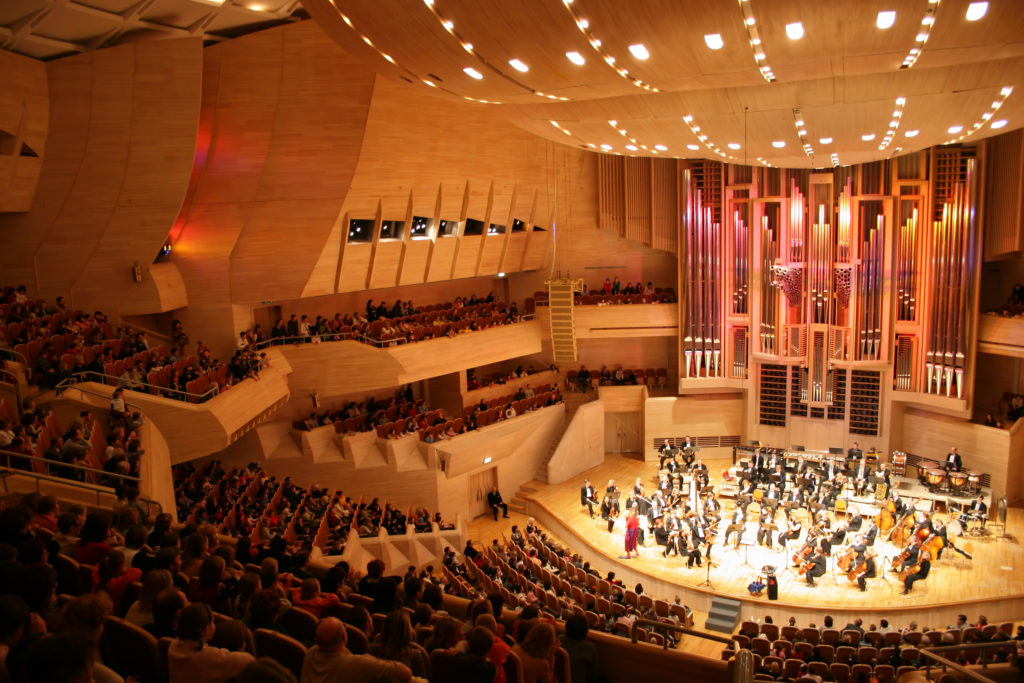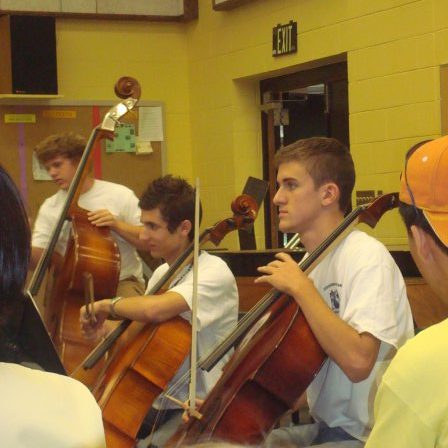
Can you see the similarities between running a business and conducting an orchestra?
If you have ever been to an event where a live orchestra was playing, you’ve likely been amazed at how a group of musicians can play together and develop a robust, complex sound. If your only experience with this is a children’s school orchestra program, then maybe not so much, but every musician starts somewhere!
Thankfully I grew up listening to classical music in my free time. My parents put up with my practicing playing cello in the living room, taking my siblings and I to singing, piano, drumming and ballet lessons. (No, I never took ballet, but I admire their ability, grace, art.)
My grandparents were a huge influence in this pursuit of musical skill and, especially, appreciation. At 11 years old, my grandmother, Mary Jo Smith, took me to a couple of music stores in Lawton to see what stringed instrument my hands would best match up with. To my memory, she didn’t drag me there. I wanted to learn to play an instrument and she was ecstatic to encourage that.
They would take me to Lawton Philharmonic Orchestra concerts regularly. We even went to the Oklahoma City Philharmonic a couple of times when I was quite young. I can remember sitting with them in the large, dark room with the musicians playing away. Every once in a while I would hear one or both of them chuckle. I didn’t understand what was funny. Now I find myself doing the same when a melody is delivered with emotion that you can feel. It’s my natural reaction to give a little laugh when something has more beauty than words can describe.

Another great musical influence came from growing up in a church with an incredible pianist and musical director. A small church, and very dear to my heart. By the end of most services, hearing Dr. Hyunsoon Whang play a solo piece by Beethoven, Mozart, Hayden, Tchaikovsky or Chopin was a stand-out moment. You could say that my faith and belief in God is inseparable from the sounds of divinely performed classical music. Our creator is the ultimate artist.
Now, I was never all that talented at playing cello. I sat in my fair share of 1st chairs of cellos sections, and was happy to play solo cello parts when the occasion arose. But when a truly talented cellist showed up at school, I was amazed at her talent.

At one point in my life, probably around the time I realized I was not nearly as good a cellist as I wished, I wanted to become an orchestra conductor. The conductor is the heartbeat of the orchestra. They encourage, instruct on when to give emphasis, when to scale back, and they hold you accountable. Most importantly the conductor leads. Everyone looks to the conductor for their cue.
For anyone who never played in orchestra or band in high school, it may be impossible to understand the stress and frustration you feel when certain members of the group aren’t playing their parts at the correct tempo, volume or even the right notes. But then there is the immense joy when you are able to play the entire piece of music together, and you make it through to the end with no (major) errors.
There were always finer details to be worked out. Then of course, there were more difficult pieces of music that you would all strive towards.
Once or twice a year there was also an opportunity to perform in a smaller group, a chamber ensemble. Instead of a group of 20, 40 or 60 musicians, it was a group of 2 to 5 players. There are no other cellos to cover up my slightly sharp notes, or if I was behind the beat. Every breath has to be aligned or the music is off.
Sometimes I get the same feelings while working in business – especially a small business with 4 or 5 employees.
If you are lucky, you get to work with people who want to see you overcome your obstacles…
My years spent in large corporations were more like playing in a large orchestra. We all worked on our own pieces, usually as a smaller team within the larger organization, in an effort to achieve our goals and make sweet, sweet music for shareholders.
Now, at our independent insurance agency, it is a much more intimate setting – just like the chamber ensembles. You really get to feel what the other people are great at and striving to improve upon. Your own vulnerabilities are on painful display. If you are lucky (and I consider myself immeasurably blessed), you get to work with people who want to see you overcome your obstacles, achieve higher production, make workflows more efficient and grow in your craft.
Not only do all of the people have to know and trust each other, they have to know and trust the sheet of music, if you will.
Here’s what I mean. When you are playing a piece of music you’ve never played or even heard before, you have to have trust in how things work. You know how the instrument works. You know the key you are playing in has a specific set of notes that may appear (F sharps, B flats, etc.). The tempo marked on the page is constant, unless otherwise stated. The others in the orchestra are dealing with their own specific set of phrases and rhythms.
That is just like in the business world when you are taking on a new project – let’s say a new client. The process should be constant. You must receive and give expectations so that you know the boundaries, the specifics, the minor chords that may come along. You have to be willing to take feedback from your teammates, the client, your boss, the outsider who is trying to help. By trusting the process, the tools and resources they use, the small team solves a problem for a new client and makes them feel like they have just heard Bach’s “Air on the G String”.
